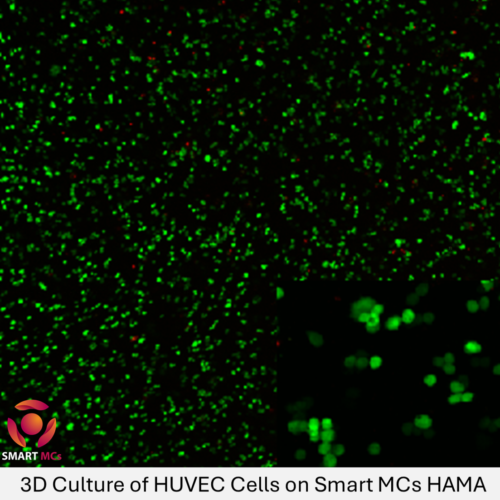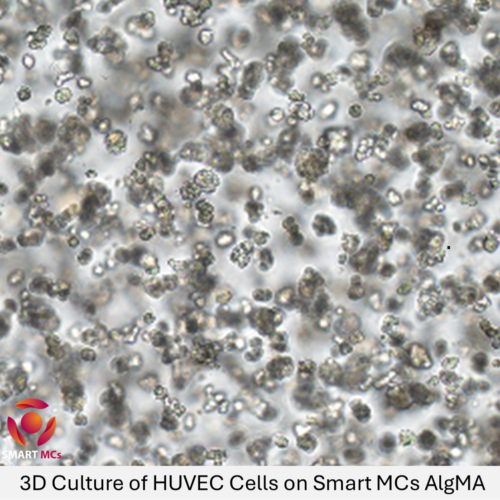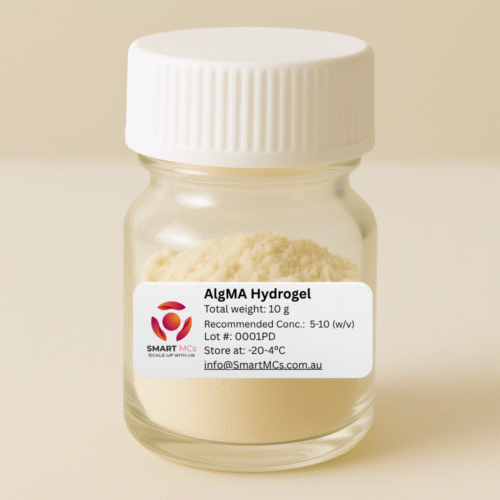Polyethylene Glycol Diacrylate (PEGDA) hydrogels serve as versatile and essential biomaterials for exploring fundamental cellular biology, offering a biologically inert “blank slate” that can be precisely tuned in terms of mechanical properties across a wide modulus spectrum.
PEGDA is an emerging scaffold widely applied in tissue engineering and regenerative medicine, distinguished by its rapid polymerisation capabilities at room temperature, minimal energy requirements, high elasticity, and substantial water retention. Furthermore, PEGDA hydrogels are highly customisable, enabling incorporation of various biological molecules to suit specific research needs.
As a repeating polymer crosslinker, PEGDA exhibits >80% acrylation and can function as a thiol-reactive crosslinker or independently to create PEGDA-only hydrogels when combined with a free-radical chain photoinitiator and suitable light source. However, PEGDA-only hydrogels typically do not support cell attachment unless explicitly modified with cellular adhesion molecules.
Applications
- Standard and 3D Cell Culture
- Tissue Engineering
- Biological 3D Printing
- Photolithography








